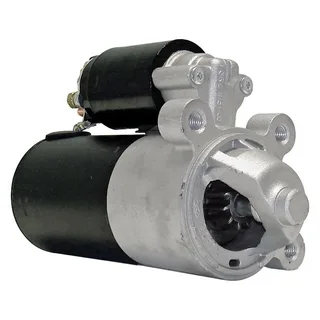In the world of private markets, asset transfers are an essential part of how ownership interests in companies, real estate, and alternative investments are bought, sold, or exchanged. Whether it’s private equity, venture capital, or real estate investments, the processes around transferring ownership can often be complex and fraught with risks. That’s where transfer agent for private assets come in.
A transfer agent plays a pivotal role in ensuring that asset transfers are executed smoothly, accurately, and in compliance with regulatory standards. They provide a range of services that are critical for private companies, real estate ventures, and funds managing private assets. From tracking ownership records and verifying transactions to ensuring compliance with legal and regulatory requirements, transfer agents help maintain the integrity and transparency of private asset transactions.
This post will explore the vital role transfer agents play in the private markets, and why their involvement is essential for ensuring the accuracy of asset transfers.
What is a Transfer Agent for Private Assets?
In simplest terms, a transfer agent for private assets is a third-party service provider who manages the issuance and transfer of ownership interests in private investments, securities, and assets. These agents are responsible for tracking the ownership records of shareholders, managing the transfer of shares or interests, and ensuring that all transfers comply with applicable legal and regulatory requirements.
In the private markets, where assets often involve less liquidity, fewer public disclosures, and unique compliance considerations, having a dedicated transfer agent ensures that investors and asset managers can focus on their core business while entrusting the complex administration to professionals.
The key functions of a transfer agent in the private markets include:
- Maintaining accurate shareholder records: The agent keeps detailed and up-to-date records of ownership interests, whether they are in the form of equity shares, membership interests, or partnership units.
- Facilitating the transfer of assets: Transfer agents handle the logistics of transferring ownership from one investor to another, ensuring that the process is seamless and transparent.
- Ensuring compliance: A transfer agent ensures that all asset transfers comply with securities laws, regulatory filings, and company agreements, minimizing legal risks and maintaining proper documentation.
- Supporting corporate actions: Transfer agents also assist with corporate actions such as dividend distributions, share buybacks, and mergers or acquisitions.
Given these responsibilities, transfer agents are critical players in maintaining the accuracy, security, and efficiency of private asset transfers.
Why Accuracy in Private Asset Transfers Matters
In private markets, the accurate and timely transfer of assets is crucial for a variety of reasons. Here are some of the key reasons why accuracy is paramount:
1. Investor Trust and Confidence
For investors, knowing that their ownership records are accurately maintained and their transactions are processed seamlessly builds trust in the investment platform or asset manager. Inaccurate records can lead to disputes, missed opportunities, and frustration, potentially eroding investor confidence. Transfer agents help provide peace of mind by ensuring that the investors’ assets are properly recorded and their interests are protected.
2. Regulatory Compliance
Private markets are not exempt from regulatory oversight. SEC regulations, tax laws, and other compliance requirements are in place to ensure that transactions are legitimate and that the rights of investors are upheld. For example, in private equity or real estate investments, Regulation D, Regulation S, and Regulation CF govern who can invest and how transactions must be documented.
A transfer agent plays a critical role in ensuring compliance by accurately documenting the transfer of assets and filing the necessary paperwork with relevant authorities. Failing to comply with regulations can result in penalties, delays in the transaction, or even the invalidation of the transfer.
3. Avoiding Financial Risks
Inaccurate or improperly executed asset transfers can lead to significant financial consequences. For instance, if a transaction is not properly recorded or completed, it could create confusion about ownership, resulting in legal disputes, penalties, or financial losses. Transfer agents mitigate this risk by maintaining accurate records and overseeing all transactions to ensure they are executed correctly.
4. Efficient Operations
The private markets are often characterized by smaller pools of investors and less liquidity than public markets. As such, transactions need to be handled quickly and efficiently. With the help of a transfer agent for private assets, asset managers can streamline the process, reduce errors, and ensure that trades are executed smoothly, which can be particularly important when dealing with high-net-worth individuals or institutional investors who expect a high level of service and efficiency.
Key Considerations for Choosing a Transfer Agent in Private Markets
Given the vital role transfer agents play in private asset management, selecting the right transfer agent is an important decision. Here are some key factors to consider when choosing a transfer agent for your private asset needs:
1. Experience and Industry Knowledge
The first consideration when selecting a transfer agent is their experience in managing private assets. Private markets can involve a variety of unique asset types, including private equity, venture capital, real estate investments, and limited partnerships. A transfer agent with experience in these markets will have the expertise to handle the specific challenges and regulatory nuances associated with each type of asset.
For example, private equity firms may require specialized services for managing ownership stakes in multiple portfolio companies, while real estate investment firms may need help managing complex property ownership structures and investor distributions. A transfer agent with the right industry knowledge will be better equipped to provide tailored solutions for these specific needs.
2. Compliance and Regulatory Support
In the private markets, compliance is a top priority. A reputable transfer agent will be well-versed in the applicable laws and regulations that govern private asset transactions. This includes an understanding of securities laws (such as the Securities Act of 1933), tax regulations, and other legal frameworks that are specific to the asset class or investment structure.
Look for a transfer agent that offers robust compliance services, such as support for SEC filings, investor verification processes, and investor communication requirements. Additionally, ensure that the agent has the tools and infrastructure in place to maintain audit trails and other documentation that may be needed for regulatory or tax purposes.
3. Technology and Efficiency
The transfer process for private assets can involve complex documentation and multiple parties. Therefore, technology is a crucial factor in ensuring accuracy and efficiency. A modern transfer agent should use a secure, cloud-based platform that allows for real-time access to investor information, accurate record-keeping, and efficient asset transfer workflows.
The ability to automate many of the manual tasks involved in transferring assets—such as tracking investor distributions or issuing new shares—can save time, reduce errors, and improve the overall experience for both the asset manager and the investor. Moreover, investor portals that allow investors to track their holdings and perform transactions independently can enhance transparency and customer satisfaction.
4. Customer Service and Communication
Since transfer agents interact directly with investors during the asset transfer process, the quality of customer service is another critical factor to consider. Whether dealing with a transfer, distribution, or a shareholder dispute, prompt and clear communication can make all the difference in ensuring a smooth transaction.
A good transfer agent should offer accessible and responsive customer support to both the asset managers and the investors. Whether via phone, email, or a dedicated online portal, the agent should be ready to assist with any issues or questions that arise during the transfer process.
5. Cost and Value
While cost should never be the sole factor in choosing a transfer agent, it’s essential to balance cost with the value provided. Some transfer agents may charge flat fees, while others may have variable pricing based on the volume of transactions or the complexity of the assets involved.
It’s important to understand the fee structure upfront and ensure that the transfer agent’s services align with your needs. Remember that the cheapest option may not always provide the best value—investing in an experienced, reliable, and technologically advanced transfer agent can prevent costly errors down the road.
How Transfer Agents Ensure Accuracy in Asset Transfers
So, how do transfer agents ensure accuracy in managing private asset transfers? Here are some of the key methods they use:
- Detailed Record-Keeping: Transfer agents use robust record-keeping systems to track every ownership change and ensure that each transfer is accurately reflected. They maintain both digital and paper records, allowing for easy access and verification at any point.
- Verification and Validation: Before executing a transfer, transfer agents ensure that the transaction is legitimate and that all required documentation (such as investor identity and signatures) is in place. They also verify that the investor is eligible for the transfer according to the terms of the investment agreement.
- Compliance Checks: Transfer agents perform compliance checks to ensure that the transfer adheres to the relevant laws, such as SEC regulations, tax codes, and company bylaws. This includes confirming that the transaction does not violate any restrictions on transfers or require regulatory approvals.
- Audit Trails: A comprehensive audit trail is maintained for every asset transfer, providing a transparent record of every transaction from initiation to completion. This documentation is crucial for internal audits, tax reporting, and regulatory compliance.
Conclusion
In the private markets, where regulatory compliance, investor confidence, and accurate record-keeping are critical, transfer agents provide an essential service in ensuring that asset transfers are conducted smoothly, accurately, and legally. Whether you are managing private equity, venture capital, or real estate investments, selecting the right transfer agent can have a significant impact on the efficiency, security, and success of your transactions.
By understanding the key considerations involved in choosing a transfer agent and recognizing the importance of accurate asset transfers, asset managers and investors alike can mitigate risks, enhance their operational efficiency, and build stronger, more transparent relationships in the private markets.




